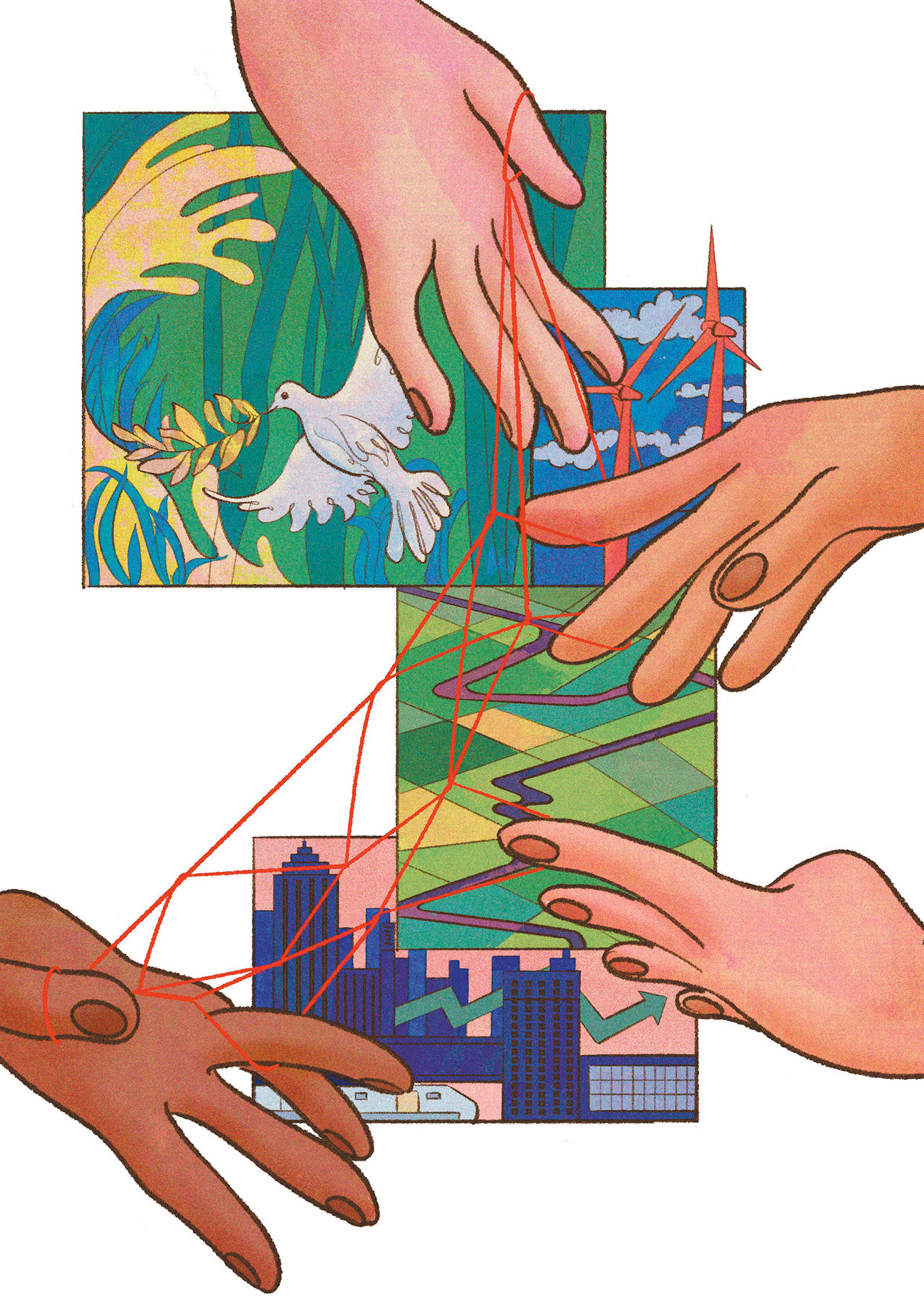China displays more understanding than Western powers on needs of less-developed nations

The growing importance of the Global South in the evolution of the international order has become clear over the past few decades.
Josep Borrell, the European Union’s top diplomat, recently acknowledged that “the era of Western dominance has indeed definitively ended”. He warned against the EU framing global relations as “the West against the Rest”, and said that “improving our relations with the ‘Global South’” is one of “the four main tasks on the EU’s geopolitical agenda”.
John Ikenberry, a representative of the US liberal international relations theory, has re-divided the world into the Global West, the Global East, and the Global South. He identified China and Russia as the primary representatives of the Global East, positioning the purported rivalry between the Global East and the Global West as the principal dynamic shaping the international order.
Simultaneously, he acknowledged that the Global South will serve as an alliance force fought over by both the Global East and the Global West. Such a three-world division is essentially a repeat of the Cold War, but a conceptual twist is that Ikenberry intentionally categorizes China as a superpower vis-a-vis the Global South.
The ongoing Ukraine crisis and the conflict in Gaza actually show that the West is losing the Global South. Notably, no country from the Global South has imposed sanctions against Russia.
This is largely due to perceptions of double standards, arising from the differential treatment of the conflicts.
The importance of the Global South in China’s international relations has increased in recent decades. China’s modern history shares similarities to that of the Global South, and China recognizes itself as a “natural part” of the Global South.
China’s role as an engine of world economic growth is generating a positive impact of “upward mobility” for the Global South. The nation has made significant investments in the Global South through the Belt and Road Initiative (BRI).
Admittedly, due to colonial legacies, the political and economic relationships between Western nations and the Global South are more intricately interconnected and intertwined compared to those between China and the Global South.
Discourses and narratives repeated by Western politicians and opinion-makers about Chinese “neocolonialism”, “neo-imperialism”, and “debt traps” have misinterpreted reality and distorted relationships.
Therefore, China must undertake the task of unveiling and deconstructing the false consciousness perpetuated by Western cognitive warfare, which disseminates biased information and shapes global awareness and attitudes.
It is crucial for China to consistently engage with the Global South, given that the competition is multifaceted, often fueled by a combination of economic, political, and strategic interests. Effectively navigating these dynamics entails acknowledging the diversity of the actors involved and understanding the intricate interplay of interests at the global, regional, and local levels.
Since the 2010s, the Chinese government has launched several global initiatives aimed at benefiting the Global South. These initiatives underscore China’s contribution to the integration of the Global South into a global community with a shared future.
Yet, the nation’s global initiatives, notably the BRI, are often perceived by Western powers as Beijing’s endeavor to construct a “world order with Chinese characteristics”. In the West the BRI is seen through the lens of “systemic rivalry”, characterized by zero-sum competitions in geopolitics, geoeconomics, and global governance. However, for the Global South, the BRI would align closely with the principles of South-South cooperation, offering an opportunity for collaboration, mutual benefit and shared prosperity.
China has a unique leverage in bolstering South-South cooperation through both bilateral and multilateral mechanisms. The Chinese economic development model has become a major source of attraction for the Global South. China demonstrates far more understanding, sympathy, and respect toward the Global South compared to the Western countries. Similarly, the Global South tends to be generally receptive to China’s global initiatives and values the long-standing historical connections forged over decades with China.
Li Xing is a distinguished professor at the Guangdong Institute for International Strategies and a professor at the Department of Politics and Society of Aalborg University. Li Qing is a professor and executive president of the Guangdong Institute for International Strategies. The authors contributed this article to China Watch, a think tank powered by China Daily.
The views do not necessarily reflect those of China Daily.


